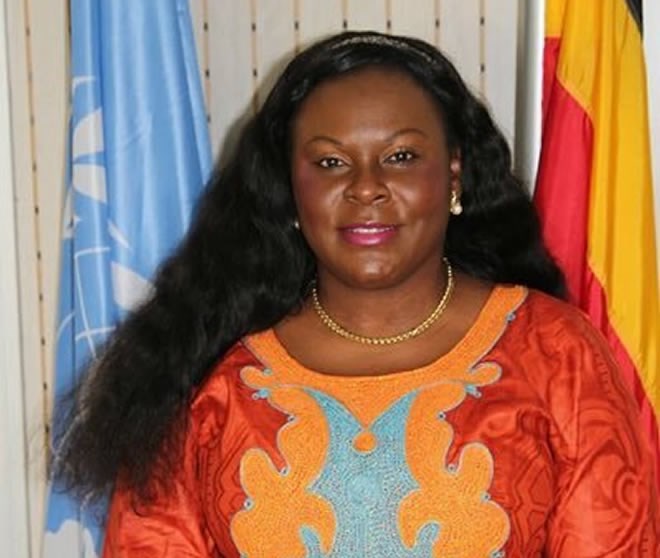
Saturday May 20, 2017
by Ronald Ssekandi

Rosa Malango, the United Nation's Coordinator in Uganda. PHOTO: TWITTER
KAMPALA, May 19 (Xinhua) -- A UN official has urged Muslim leaders in Africa to join the fight against violent extremism, warning that its continued growth on the continent will reverse the development gains.
Rosa Malango, the United Nation's Coordinator in Uganda, on May 15 said if the extremism is not addressed, it threatens to curtail Africa's development prospects for decades to come.
She was speaking to a meeting of Muslim leaders and scholars from eastern and southern Africa who had convened in Uganda to discuss countering, responding and preventing violent extremism.
The two-day meeting was organized by International Interfaith Peace Corps and the United Nations Development Programme (UNDP)'s Regional Service Centre for Africa.
Malango said Muslim religious leaders must get involved noting that fighting against violent extremism was a collective responsibility.
"The fact that violent extremism has been affecting Muslims and Muslim communities most, highlights the need for the engagement of Muslim religious leaders if we are to help communities that are vulnerable to the activities and operations of violent extremist groups," she said.
She said communities need to be empowered to be a vital part of the solution to the growth of violent extremism.
Sheikh Shaban Mubajje, the head of Muslims in Uganda said it is the responsibility of Muslims to stand up and educate the people about Islam and the fact that it does not promote violent extremism.
"Terrorism is the epitome of injustice because it takes innocent lives and the Koran calls all Muslims to act justly. Acts of terrorism are therefore 'Haram', forbidden in Islam," Mubajje said.
At the end of the meeting, the Muslim leaders and scholars agreed on a framework to enable them to work together to fight against all forms of extremist activities in the name of Islam.
They also reaffirmed a declaration made by Muslim leaders in West Africa against all forms of extremism in the name of Islam.
According to the UN, violent extremism has had a devastating social and economic impact across the Africa. Groups such as Boko Haram in Nigeria and Al-Shabaab in Somalia have forced hundreds of thousands of people from their homes, increasing instability in the region.
UNDP figures show that since 2011, more than 21,000 people have been killed in over 4,000 terrorist attacks in Africa. The operations of Boko Haram, for example, have internally displaced 1.2 million people and forced more than 200,000 Nigerians to flee to Cameroon, Chad and Niger.
In Kenya, Al-Shabaab activities have resulted in an estimated 25 percent drop in the tourism sector, a vital source of jobs and income for the country.
According to the global body, countries must address issues that drive youths away from productive lives and draw them to mayhem and destruction.
In late 2015, the UNDP launched a four-year program to help African countries prevent the growth of violent extremism.
UNDP argues that violent extremism can be prevented or responded to through a development approach where by individuals and institutions are constantly engaged to understand the drivers of extremism.
For proper implementation of its program, UNDP classified countries into three categories, Epicenter countries (Nigeria, Mali, Somalia and Libya) where extremist groups are active; Spillover countries (Cameroon, Chad, Kenya, Mauritania, Niger and Tunisia) where impacts are being felt and; At risk countries which exhibit some underlying and root causes of violent extremism.
At risk countries include Central African Republic, Sudan, Tanzania, Senegal, Morocco and Uganda.